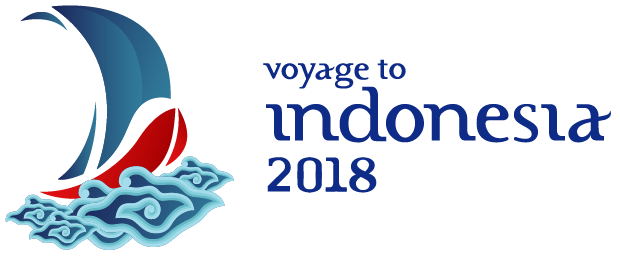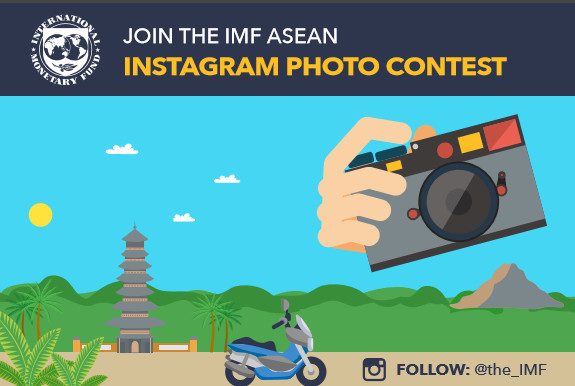The Annual Meetings of International Monetary Fund & World Bank Group (IMF-WBG) are conducted annually in October to discuss the work of their respective institutions.
Read MoreVoyage To Indonesia
The Voyage to Indonesia program will feature public events, seminars/panels, and publications showcasing Indonesia and ASEAN as a reformed, resilient, progressive, and pro-job economy. VTI events will be integrated under four overarching themes:
A wide range of activities such as seminars, focused group discussions (FGD), and workshops will be organized around the first two themes. “Indonesia’s Diversity” will be showcased through cultural events and targeted presentations celebrating the unique heritage and composition of the country. Lastly, “Indonesia’s Potential” will promote programs and priority initiatives for the host country, namely trade fairs and investment opportunities. Several ministries and other respective institutions are collaborating to organize and carry out these events.


News About Voyage To Indonesia
Di sela-sela kegiatan Pertemuan Tahunan International Monetary Funds-World Bank (IMF-WB Annual Meetings) pada 13-15 Oktober 2017 di Washington DC., Bank Indonesia berkesempatan melakukan Wawancara eksklusif dengan Christine Lagarde, Managing Director di International Monetary Fund (IMF).
Read MoreLeading up to the Annual Meetings 2018 in Indonesia on Oct 10-14, 2018, the IMF is running a photo contest to showcase how ASEAN countries are tackling climate change or reducing inequality.
Read MoreOrganized by Korea's Ministry of Strategy and Finance, Bank of Korea, IMF, and Peterson Institute of International Economics
Read MoreThe global environment has become more uncertain, including from inward-looking policies in some major advanced economies, China’s ongoing rebalancing, and the rapid development of the digital economy. While countries have adapted their policy frameworks and implemented structural reforms to cope with uncertainty and changes in the global landscape, the search for a new growth model is underway around the world, including in ASEAN.
Read MoreAt 12:30pm ET I will join @BrunoLeMaire @Bill_Morneau , Sri Mulyani Indrawati, and Gita Gopinath, for our #GlobalEcon Debate
Read MoreFrequently Asked Questions
Q. What are the Annual Meetings of the IMF and the World Bank Group (WBG)?
The Annual Meetings are a collection of events that take place in October around the yearly gathering of the Board of Governors, which includes official representatives from the 189 countries that are members of both institutions. They are one of the top economic conferences in the world.
The Meetings bring together central bankers, ministers of finance, academics, private sector executives, parliamentarians, civil society organization (CSO) representatives, and journalists. The various events give participants the opportunity to discuss issues of global concern, including the economic outlook, financial stability, jobs and growth, poverty eradication, development, and aid effectiveness.
Q. What benefits does a country derive from hosting the Annual Meetings?
The opportunity to host the Annual Meetings brings many benefits to the host country, including increased tourism and investment and business opportunities that last long after the meetings are over. With about 10,000 people attending for a weeklong series of events, they offer an unparalleled platform for the host country to project itself onto the global stage, showcase its achievements, and highlight its economic potential for investment and growth.
Q. What will be the environmental impact of hosting the Annual Meetings in Bali?
Reducing the Meetings’ environmental footprint is a key objective. Digital channels will be used extensively, and purchased equipment (computers, desks, etc.) will be donated to serve the people of Indonesia.
Q. What benefits does Indonesia get from its IMF membership?
Indonesia is one of the IMF’s 189 member countries. Through this partnership, the country has ongoing access to other major economic players in the global economy and the ability to influence the global debate on key issues of its interest —for example trade and international taxation. Indonesia also has access to technical assistance and training in key economic and financial areas, like monetary policy, reserve management, and banking supervision.
More broadly, IMF membership promotes global economic and financial stability, which fosters a better economic environment for Indonesia’s industries and exports.
Q. When and where will the Annual Meetings take place?
They are usually held for two consecutive years at the IMF and WBG headquarters in Washington, DC, and every third year in another member country. The 2017 meetings will take place in Washington, DC. The 2018 Annual Meetings will take place in Nusa Dua, in Bali, Indonesia, in October. A complete list of host countries is available here.
Q.What is the selection process to determine the location of the Annual Meetings?
The process begins with an expression of interest in writing by the authorities of a member country, followed by a bid document detailing how it will meet key requirements, such as conference space, number of hotel rooms, information technology capabilities, and security. Countries that meet the key requirements are shortlisted for site inspection by teams from the IMF and WBG. Based on their conclusions, Executive Board members of both institutions make a recommendation to the Board of Governors.
For the 2018 Annual Meetings, Indonesia was selected as the host country. A key factor in the selection was the fact that Nusa Dua, in Bali, met the key requirements, with existing conference venues and accommodation facilities, appropriate information technology and audiovisual infrastructure, and convenient local and international transportation.
Q.And what are the benefits specific to Indonesia?
Hosting the Annual Meetings will put Indonesia in the spotlight on the world stage and highlight its importance in and rising role regarding global issues. The Meetings will provide a platform for Indonesia—and the Association of Southeast Asian Nations (ASEAN) region more broadly—to showcase impressive social and economic achievements in recent years.
In addition, the Meetings will strengthen Indonesia’s position as a leading global destination for conferences and visits, allowing Indonesia to project itself as a well-organized venue for hosting high-level gatherings. At the local level, even though Bali is already a world-class destination with the appropriate infrastructure, improvements will be made in numerous areas, including airport facilities, roads, local tourism, and digital connectivity.
Q.What is the significance for Indonesia and Asia of hosting this gathering?
The Annual Meetings in Bali are an opportunity for Indonesia and Asia to reaffirm their importance and influence on the global stage. Indonesia is an emerging powerhouse in Asia, with increasing global influence as one of the next largest emerging markets in the world.
For the IMF, the Meetings in Indonesia present another opportunity to strengthen the engagement with a fast-growing region, with six economies represented in the G20. Following the approval of quota reform in 2010, Asia now holds about 20 percent of the IMF’s voting shares, representation that is more closely aligned with the region’s position in the world economy.
Contents of this page is respectfully acredited to the official IMF page at http://www.imf.org.

